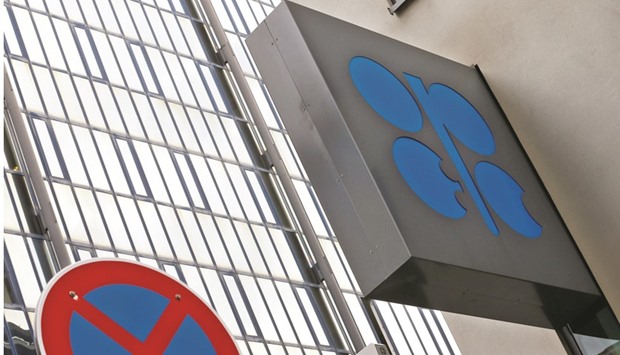Opec will stick to its policy of unfettered production after members rejected a proposal to adopt a new output ceiling, but ministers were united in their optimism that global oil markets are improving.
While crude prices dipped briefly after Thursday’s meeting, there was little of the rancour that punctuated last December’s gathering. The more harmonious atmosphere meant the group was able to appoint a new secretary-general – Nigeria’s Mohammed Barkindo – something it hadn’t been able to agree on since 2012.
“The atmosphere in meeting was calm without any tensions,” Iranian Oil Minister Bijan Zanganeh, whose disagreements with his Saudi counterpart had unsettled previous meetings. There is “very good unity” among members, he said.
The change of mood reflects two developments: a Saudi Arabian oil minister determined to make his first meeting a success and, more importantly, the 80% rally in oil prices since January that’s made ministers confident Opec’s two-year old strategy of trying to win market share from higher-cost producers is working.
“There is a strong willingness to re-establish Opec’s credibility, strengthen its voice while also bringing greater stability in the oil market,” said Alexandre Andlauer, head of oil and gas at financial research firm AlphaValue. “This is a clear Saudi ambition.”
While analysts agree supply and demand in the global oil market is much closer to balance than December, hurdles remain to Opec regaining the market power it once enjoyed. Relations between the group’s two most powerful members – Saudi Arabia and Iran – remain strained, global stockpiles are at record levels and the field outages in Canada and Nigeria that have helped drive prices higher may prove temporary.
Brent oil fell on news of no Opec output agreement before climbing to a seven-month high in London after the US reported a drop in stockpiles. Prices were little changed Friday, with the international benchmark adding 14 cents to $50.18 a barrel at 2.16pm Singapore time. The grade is still less than half its value before the Organization of Petroleum Exporting Countries decided to pump at full pelt in 2014.
In a briefing after the meeting on Thursday, Saudi Arabia’s Oil Minister Khalid al-Falih said there were reasons to remain cautious despite the improving market balance.
“We are concerned about high inventories,” he said. “We need to see a steady deficit at a reasonable level.”
Before the meeting, Saudi Arabia had floated the idea of restoring a group production ceiling as a gesture to show it had no plans to flood the market and it was serious about making the meeting a success. The proposal would have been largely symbolic and there was no suggestion anyone would cut production.
Ministers decided a cap wasn’t necessary at this stage. Opec needs more time to come up with a new output new ceiling, outgoing Secretary-General Abdalla El-Badri said after the meeting, adding that it’s hard to find a target when Iranian production is rising and significant Libyan volumes are halted.
Iran has rejected any cap on output as it restores volumes following the removal of sanctions in January. The country’s refusal to participate in a production freeze proposed earlier this year prompted Saudi Arabia to block a deal between Opec and Russia in April.
After that April meeting in Qatar – the final appearance of former Saudi oil minister Ali al-Naimi after two decades in the post – Saudi Arabia had seemed ready to go it alone in global oil markets. A view supported by comments made by the powerful Deputy Crown Prince Mohammed bin Salman, who said the kingdom no longer cares about oil prices.
Al-Falih took the chance to clarify those comments. The prince’s comments reflect how the country will manage its internal affairs, including its capacity to weather extended periods of low prices, rather than a broader view about oil policy, al-Falih said on Thursday.

Opec will stick to its policy of unfettered production after members rejected a proposal to adopt
